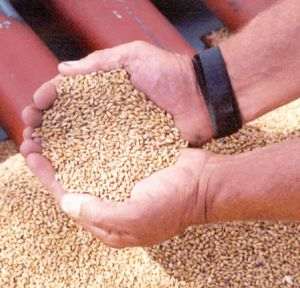• "Certain" bakery companies are given permission to delay returning wheat borrowed from The State Reserves, and are thus enjoying an interest-free loan
• The permission comes from the Prime minister!
The wheat stored by The National Authority of The State Reserves (A.N.R.S.) can be the object of a very lucrative business for bakery companies who have a good relationship with certain dignitaries. Some of them (only some of them!) can borrow wheat from A.N.R.S. when the wheat price is high and return it immediately after harvesting time, when the price is the lowest! Nevertheless, not just any company can enjoy such privileges, so The Government is tampering with the market knowingly. A.N.R.S. representatives explain: "Last year, 170 companies were allowed to borrow wheat. Of them, 18 companies are given permission to return the wheat in August 2004. The overall quantity we are talking about is 26,402 tons." In other words, only ten percent of the "borrowers' were allowed to keep the wheat until after harvesting time. Nearly half of the aforementioned quantity - 11,500 tons - was lent to "Spicul." Other companies that were granted "indulgence" include "Panvitan" - 3,600 tons and "Dambovita" - 1,250 tons. Importantly, only the Prime minister can order A.N.R.S. to release the wheat from The State Reserves. It is also only the Prime minister who can grant "indulgence.' But only few people can enjoy such privileges... The rest end up returning the wheat at a higher price than the price it was worth when they borrowed it. Aurel Popescu, president of the "Rompan" association of bakery companies, has estimated the losses incurred by this industry at some 35 million USD.
In drought years, bakery companies are allowed to borrow wheat from The State Reserve. Last year was the second consecutive drought year and the wheat harvest was therefore small. Consequently, the bakery companies which usually make money by borrowing wheat from The State Reserves realized that the price of the wheat they have to return is the same as or even higher than it was when they borrowed it. So they started pressing for an extension of their deadline. The initial deadline of October 31st, 2003 was first extended to November 30th, 2003 and then to January 31st, 2004. Those who did not return the wheat by this deadline received a very generous "indulgence:' August 31st, 2004, that is, after harvesting time, when prices are very low.
The practice of granting "wheat loans' contradicts the rules of a market economy. The State does not sell the wheat through a commodities exchange or a tender, but lends it to certain companies. These companies practically receive zero-interest loans. The particularity of this year is that The Government has picked favorites from among the already favored companies that have unlimited access to The State's wheat.
As a matter of fact, a new "loan' of 150,000 tons of wheat from The State Reserves is in progress... So, to The Government we go!


















































